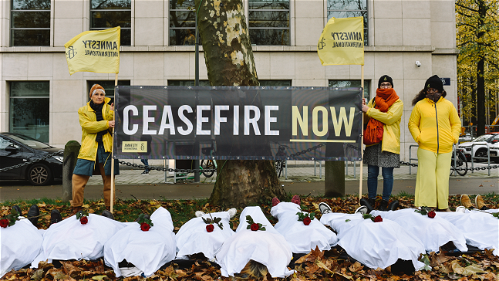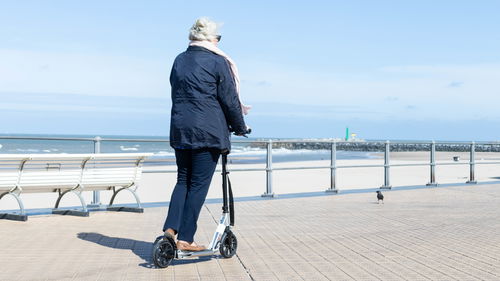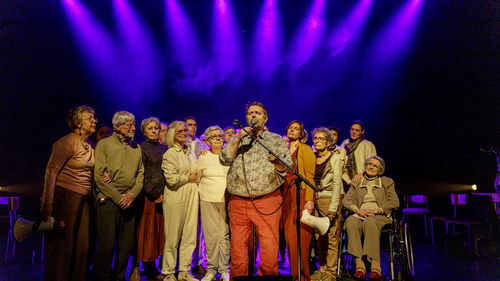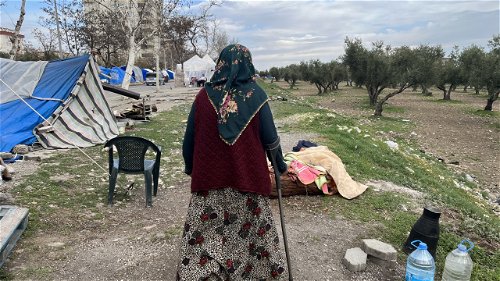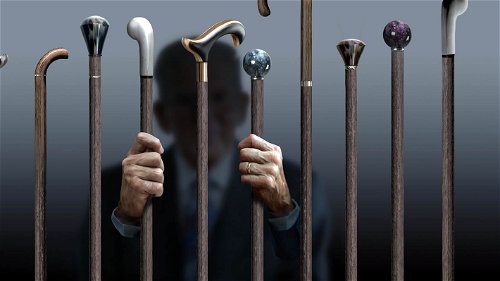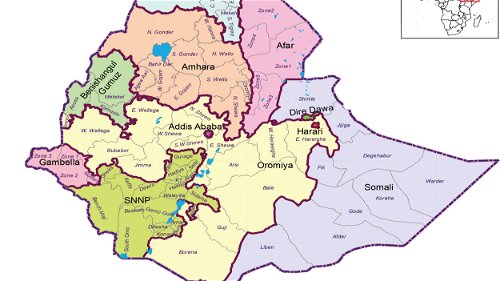
The Day Time Stopped
The story of Kriticos is one of a black boy in a white, suburban neighbourhood in Brussels. The police accused him of breaking in, when he entered his own house. A traumatic experience that Kriticos wrote down in this blog.
My name is Kriticos Pandelis Mwansa, I’m a 22-year-old student and performing artist. I was born in Zambia but today, I reside in Belgium. Me and my family moved to Belgium, in 2004, after my father got a diplomatic post in Brussels. We lived in an all-white suburban neighbourhood and are the only black family in our village. I always abided by the law and never had encounters with the police… That was until this fateful day in 2013. That day, when I was 16, I felt time stop 3 times. Here’s how.
“You broke into this house”
On 22nd of March 2013, I was walking home from school with my brother William (15).
We notice a police van drive by us and as it passes us, it slows down... I notice them staring at us as they slow down and after our eyes locked in very short staring battle, they start off again. Me and my brother were uneasy for a moment, but we think nothing of it and continue in our way home.
Once we get home, we’re welcomed by our little sister, Rose (11). William goes to the kitchen to fetch a snack and I head upstairs, but as I go toward the staircase, I notice a police woman through the window, walking towards the front door.
I walk toward the front door and before I have a chance to open it, I hear a loud banging on the door that strikes me with a trembling fear. I pause and then remember that my parents aren’t home, they’re working, so I’m the one in charge of the house. I open the door to a blonde female police officer.
Before I even have the chance to say hello or any form of greeting, she starts yelling at me in Dutch. I’m caught off guard as I don’t understand everything in Dutch, so I ask her to reiterate. She then repeats in a more comprehensible tone.
“You broke into this house and I’m going to ask you to step out.”
I’m in complete disbelief. This officer is accusing me of breaking into & robbing my own house.
As I slowly realize the situation at hand, that is when I first felt it happen. The time stopped. Everything just seems to freeze for that brief moment. The only things that seem to still be animated is my heartbeat, which is rapidly punching against my ribcage, my breathing, deep and slow, and my limbs. I can move but talking feels like a very arduous task. The sound seems to have frozen along with everything else. All I hear is white noise.
As I feel the time stop I remember my little brother and sister are in the house and their innocent selves are probably witnessing this injustice. I hope they didn’t hear the banging on the door, or the enraged shouting coming from the police officer at our doorstep, I don’t want their first confrontation with police to be this way. But alas, I turn around to see them staring back at me and the officer with a concoction of fear and disbelief in their facial expression.
Do I look like a burglar?
Time slowly comes back to its regular pace. I turn back around to the police officer and say: “We’re not robbing this house. We live here,” before pointing towards the family pictures on display in the entrance.
She sees the pictures and doesn’t take it as concrete evidence indicating that this is indeed our residence. She then interrogates me on the address of the house I’ve been living in for the past 5 years. I tell her the address. She looks to her right, at her male co-officer, to confirm my story.
Just now, I notice that there are in fact two police officers accusing us of robbing the house that we live in.
Time stopped once more as I thought to myself
“Does he believe that we robbed this house, too? Or does he possess the common sense that his partner does not have?
Did it not occur to any of them that we went through the front door with the house-key in the middle of the day?
Does it happen often that two young boys walk in suburban residents with school bags to perform break-in robberies?
Is it the bags that made us suspicious?
Did we walk too fast?
Do I look too old to be a 16-year-old boy?
Does my mature appearance make it more realistic that I can perform the crime they are accusing me of committing?”
I’m searching for every rational reason possible to understand why this is happening to me and my siblings. I did not want to pin it on the color of my skin, right away, because that would be dismissive.
Her partner nods at her to confirm that the address I told them, the address, was indeed correct.
I think that will prove it. If the family pictures in the entrance weren’t enough, this will have to be good enough for them, right?
Wrong…
The police woman is still unconvinced that I live in the house, so she tells her partner to go to the neighbours to confirm.
Will I be the first Belgian Trayvon Martin?
My neighbours are a white family. We don’t talk much, but we wave at them now and again, when we get the mail or leave our house. I know that their answer to the policeman will determine whether me and my siblings get arrested for walking into our own house or not. I just hope that we waved at them enough times.
While this woman’s partner was interrogating the neighbours, she stood guard. Watching me and my siblings in case we decided to make a run for it. She had the look of disgust on her face that I’ve only seen people express when looking at vermin.
My house has door that leads to the backyard. It’s a wooden creaky door that is rarely locked and sometimes when the wind blows too strong, it opens or slams the door. Of all the moments this could have happened, the wind chose now to blow, causing the backdoor, which was ajar at the time, to slam shut.
Normally, we never think much of the door slamming. But in this moment, it caused time to gradually slow down again for the third and final time. Completely. Because, as inconsequential it is to me and my siblings, it is alarming to the policewoman. She turns her head to her left, towards the door. As she does this I notice her reach for her gun.
A plethora of thoughts run through my mind. I think of Trayvon Martin.
“I’m the same age as Trayvon when he got killed. Would I be next?”
“No, this stuff only happened in the USA. Never in Belgium.”
“What if I’m the first case?”
My younger siblings were the second thing to cross my mind.
“My sister and brother are right behind me. If she shoots me I pray my sister goes unharmed.”
“If she shoots me, I hope my sister doesn’t see it.”
The last thing to cross my mind were my parents.
“What’s mom going to say when she finds out the police came to our house? What’s dad going to do when he finds out his name sake was shot? Will I tell them that I tried to convince them that it was our house, but that I failed?”
Time gradually goes back to its normal pace again and I manage to recollect myself.
The policewoman noticed that it was just the wind, but her gun was still in her hand.
“When will her partner get back here? Did the neighbours convince him that we were indeed their neighbours?”
As think to answer my question, he comes back. He confirms to his colleague that we indeed live in our house.
No farewell, no apologies
The policewoman, defeated and finally convinced, puts her gun back in its holster and turns back to me. Disgust still present in her expression, without a farewell, an apology or anything alike, she walks back to her van and they drive off as though nothing happened.
Me and my siblings stay in the same position for what seems like hours before I close the door. This traumatic moment shook me to my core.
There is only one question in my mind.
“The policeman didn’t know our name or any other form of identification.
So, what did he ask the neighbours when he asked them whether we lived here or not?”
The policemen go on with their lives. They probably don’t even remember the fact that this happened. But I will never forget that day. The day time stood still three times.
Your silence is consent
That was my first encounter with the police. The police of my neighbourhood looked at me and my younger siblings because of our skin colour. They racially profiled us. We were all minors, at the time. As I grew older and heard more stories from the people of color in my surroundings. Stories of how time stopped for them. It became very clear to me that racial profiling is indeed a problem we have here in Belgium. It needs to be addressed not just by the victims, sharing their experiences, but more importantly by the policemen’s colleagues and superiors critically evaluating one another.
What if that policewoman’s partner knew what she was doing was wrong? If he only stood up to his partner and put an end to our harassment, he would have saved us from our traumatic moment.
The great Plato once said, “Your silence is consent”.
I wonder how many other victims of racial profiling felt time stand still. How many never got the chance to tell their story?
